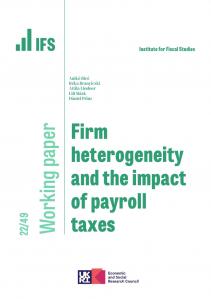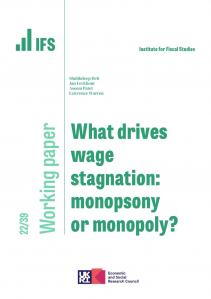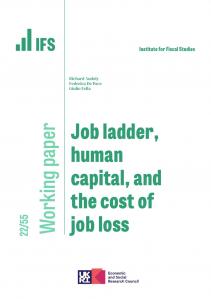This article was first printed in the Financial Times newspaper on 7 July 2015 and has been reproduced here in full with permission.
George Osborne tells us his Budget will be used to promote productivity. It is also likely to be the UK chancellor of the exchequer’s best chance this parliament to implement serious tax reform. And it comes only a week after the UK’s Committee on Climate Change warned we risk failing to make sufficient progress on meeting government emission cutting targets.
Those three statements are linked because a well-designed carbon tax ought to be a potent weapon in ensuring greenhouse gas emissions are reduced as efficiently as possible. And the way the UK taxes emissions at the moment is complex, costly and uncertain, reducing productivity in both energy supply and business more generally.
In the grand fiscal scheme of things carbon taxes remain relatively small in revenue terms, though they have been growing. But taxing emissions is a straightforward example of a well known public finance principle. Putting a price on an externality — making the polluter pay the cost of the harm created by the pollution produced — is often the most efficient way of reaching an economically optimal outcome.
It is not that the UK does not have enough policy: there were 22 separate pieces of climate change-related legislation at the last count. We also have an alphabet soup of climate-related taxes. Sadly they fail just about every test of coherence. They impose different rates of tax on emissions according to the source: carbon emissions from producing electricity are much more heavily taxed than those produced from burning gas. And effective taxes vary according to who is using the energy. Businesses pay higher energy taxes than do households. And different sorts of businesses pay different rates of tax.
The scale of the differences is striking. In the business sector, effective carbon prices can vary by a factor of 20 or more. In the household sector there is no tax at all on using gas. Indeed, given that value added tax is charged at only 5 per cent on household energy use there is in effect a significant subsidy to burning gas embedded in the tax system.
When it comes to electricity prices, green policies raise them for consumers because it is more expensive to produce electricity from solar or wind energy than by burning gas. One reason is the lack of an appropriate carbon tax levied on fossil fuels. Either way, the system raises the price of consuming electricity relative to the price of gas and, as such, provides a price signal to households to move away from an increasingly green electricity supply and towards gas.
So the system is complex, it hits different businesses in very different ways, and manages to subsidise some forms of energy consumption. As if that were not enough the system is unstable, with future plans changed far too frequently. If there is one thing business as a whole needs from a tax system it is stability and predictability. The same is true for those thinking of investing in low-carbon technologies of all kinds.
If Mr Osborne does turn his mind towards environmental taxes, it is easy enough to say what in general he should seek to achieve: a carbon price that is consistent across different users and different sources of emissions, that is predictable through time and that is compatible with legislated climate goals. It would be helpful if he could at least set that aim. More concretely he could bring together the half dozen or so taxes and charges on business energy use into a single one taxing the carbon content of the fuel used at a consistent rate.
As ever tax changes will create winners and losers. This no doubt helps explain the anomalous treatment of gas consumption — and the more general subsidy to household energy consumption through VAT. But, one way or another, this is a nettle we will have to grasp. Poor policy design is guaranteed to raise the cost of tackling climate change and to reduce the probability that goals will be met.









